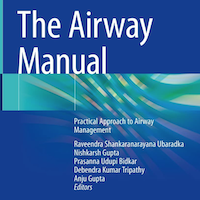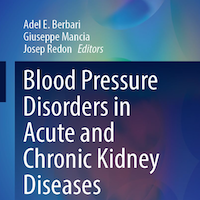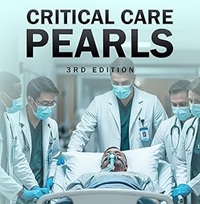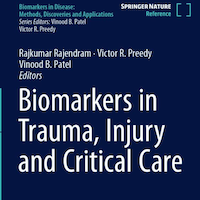Tag: RRT
The Kidney Crisis: Acute Injury as a Predictor of ICU Survival
This extensive population-level study from Ontario, Canada, analyzed over 480,000 adult ICU admissions to clarify the relationship between Acute Kidney Injury (AKI) and patient outcomes. By utilizing outpatient baseline data... read more
Integration Equals Separation for CRRT Filter Lifespan in ECMO Patients (E-CRRT Trial)
The multicenter randomized controlled E-CRRT Trial, conducted from May 2021 to March 2025 at King Chulalongkorn Memorial Hospital (KCMH) and Central Chest Institute of Thailand (CCIT), compared two strategies for combining... read more
Mastering ICU Care: Algorithms and Clinical Decision-Making for Residents
This book covers all aspects of ICU care, from diagnostics and treatment modalities to patient management. It features real-world case studies and provides step-by-step guidance on critical care. Additionally, it discusses... read more

BICARICU-2: Bicarb Infusions Curb Dialysis Needs in Acidotic AKI
The BICARICU-2 trial investigated the use of sodium bicarbonate (NaHCO3) infusions for critically ill patients suffering from severe acidemia and Acute Kidney Injury (AKI), most often due to septic shock. While the trial,... read more
The Falling Count: Platelet Trajectory Post-CRRT Predicts Mortality in AKI
This retrospective cohort study examined the dynamic changes in platelet counts—the platelet trajectory—around the initiation of Continuous Renal Replacement Therapy (CRRT) in over 2,200 critically ill adults with Acute... read more
More Than Just Acid: Navigating the Complexities of Lactate in Critical Care
Lactate is a vital marker in critical care, but its meaning is complex, reflecting an interplay of perfusion, metabolism, organ function, and stress. Clinicians must adopt a nuanced, multimodal approach to interpretation,... read more
Workbook on Renal Replacement Therapy in ICU (ISCCM)
This workbook focuses on renal replacement therapy in ICU. The incidence of acute kidney injury in critically ill patients is increasing steeply. Acute kidney injury in this setting is associated with high morbidity and mortality.... read more

Hemodynamic and Neurological Presentations of Invasive Meningococcal Disease in Adults
Neurological and hemodynamic presentation of invasive meningococcal disease (IMD) are clinically and prognostically distinct. Recognition of these phenotypes is critical for appropriate management and prediction of outcome. Of... read more
Meropenem and Piperacillin/Tazobactam Optimized Dosing Regimens for Critically Ill Patients Receiving RRT
This study provides optimized dosing regimens for meropenem and piperacillin/tazobactam in critically ill patients receiving diverse renal replacement therapy (RRT) prescriptions. Daily dosing is dependent on the target... read more
Seraph-100 Hemoperfusion: Clearing Pathogens and Enhancing Outcomes in Sepsis
This study evaluated Seraph-100 hemoperfusion (HP) as a treatment for sepsis in intensive care unit (ICU) patients admitted after cardiac surgery for infective endocarditis (IE). Thirteen septic patients received Seraph-100... read more
Hemodynamic Stabilization Using CRRT and cIVNa Combination Therapy
Compared with conventional continuous renal replacement therapy (CRRT), combination therapy of CRRT and continuous intravenous sodium infusion therapy (cIVNa) increased blood pressure, enhanced urinary volume, and reduced... read more
ISCCM Manual of RRT and ECMO in ICU: A Reference Book for Practicing Intensivists
The topics were chosen to make the reader understand comprehensive management of therapies including organization, communication and other administrative issues including cost-effective therapies. This will help the practicing... read more

Total Bilirubin as a Marker for Hemolysis and Outcome in ARDS Patients Treated with vvECMO
Patients with acute respiratory distress syndrome (ARDS), treatment with veno-venous ECMO and a total bilirubin (tBili) plasma concentration over the threshold of 3.6 mg/dl had significantly lower chances of survival, recovery... read more
Machine Learning Model for Predicting Acute Pancreatitis Mortality in the ICU
Machine learning model has been proved to be superior to existing prediction scores for mortality prediction of Acute Pancreatitis (AP). The use of most of previous ML models is limited in clinical practice, mainly due... read more
Association Between the Lactate-to-Albumin Ratio (LAR) Index and AKI Risk in Critically Ill Patients with Sepsis
Lactate-to-albumin ratio (LAR) is an emergency predictive indicator of sepsis-related mortality. An elevated LAR is associated with poor outcomes in critically ill patients. However, its predictive value for acute kidney... read more
Favorable Outcomes When Using Prolonged CPR Combined with ECPR
Extracorporeal CPR (ECPR) combined with continuous renal replacement therapy (CRRT) successfully rescues a patient who experienced sudden cardiac arrest for 152 minutes. ECPR is an effective and advanced form of extracorporeal... read more
Intubate Patients with Sepsis Before Midnight or When the Time Comes?
The ever-recurring decision for every clinician is to act or not to act and when to act. The balance of benefit or harm of an intervention and the optimal timing of treatment is not always clear. Intervening or not and... read more
Association Between SHR and Mortality in Patients with Heart Failure Complicated by Sepsis
This study suggests that stress hyperglycemia ratio (SHR) may be a valuable predictor of prognosis in patients with heart failure combined with sepsis. Both high and low SHR values are associated with poorer outcomes.... read more
Critical Care Pediatric Nephrology and Dialysis
This book covers all key aspects of critical care in pediatric nephrology, including acute dialysis in sick children. It also provides detailed protocols for managing fluid and electrolyte balance and dialysis in children... read more

Critical Care Nephrology and Renal Replacement Therapy in Children
Pediatric critical care nephrology is a complex and highly specialized field, presenting challenges and management strategies that are often quite distinct from those seen in adult practice. Therefore, it is high time... read more

Prevalence and Risk Factors of ICU-acquired Weakness in COVID-19 Patients
The prevalence of ICUAW in patients with COVID-19 was considered relatively high. Older age, pre-existing hypertension, medical intervention of prone position, NMBA use, needed tracheostomy and RRT were likely risk factors.... read more
Citrate Anticoagulation for CRRT
Regional citrate anticoagulation (RCA) is a viable option for liver failure patients. The pro-posed inducible metabolic pathway hypothesis challenges the belief in hepatic dominance over citrate metabolism during RCA-CRRT.... read more









